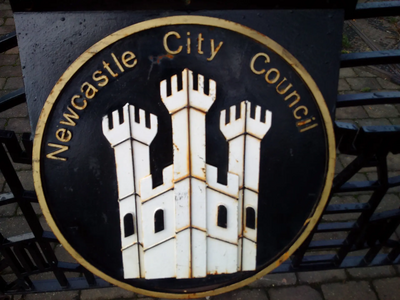Democracy Review to ensure fairer wards in Newcastle, demand Liberal Democrats

The Council meeting on 5th September was the 20th anniversary of his first council meeting after the election of Cllr Greg Stone to Newcastle City Council in a by-election in the then Dene ward.
"At the time I remember being struck by the size of the electorate of my ward, which contained more than 12,000 voters. The then smallest ward had just 3,100 voters. This level of imbalance in representation struck me as unequal and unjust. It was obviously problematic that one ward had four times as many voters as another. Fortunately, this was addressed in a boundary review in 2004, which brought about a happier outcome, " he told a Council meeting discussing his motion for a new boundaries review to establish fairer electorates.
This motion acknowledges the 2016 Electoral Review was carried out in good faith with good intent. The ward boundaries are broadly sound in terms of geographic communities. However, the ward population projections have turned out to be well adrift from what was forecast.
The council has a corporate priority of being Fit for Purpose. This motion suggests the Review has turned out to be un-fit for purpose. Both of the identified criteria for intervention apply to the city's current position. The new arrangements are demonstrably less fair and less equal than previously.
The Local Government Boundareis Commission for England (LGBCE) has clear guidance on this. An electoral review is mandatory for a local authority if one ward exceeds 30% variation, or if 30% of wards are more than 10% from the average electorate for the authority.
The 2016 Review was triggered because one ward appeared to have reached a 33% variation from the citywide average. We now have two wards exceeding 30% variation. Using May's electorate figures, one is 35.7% under quota and another is 31.3% under. More than 30% of wards exceed the recommended 10% variation. Four wards exceed 20% variation. The largest has an electorate not far off twice the smallest.
At no point was the likelihood that the new ward sizes exceeded the LGBCE trigger for a new Review reported to Constitutional Committee or to Council. The issue was only raised at all at Constitutional Committee in March because I challenged officers on figures buried in an Appendix listing total electoral registrations per new ward.
It's not a matter of party political expediency. The disparity in ward sizes affects all of us. Castle and Parklands are currently the biggest and both will grow further through new housing in coming years. Other wards like Denton & Westerhope, and Walkergate are more than 20% over quota.
In terms of compliance with the legal criteria, we have to scrutinise why the Review has achieved greater electoral inequality. We are in a situation where another Review is now inevitable. The finding of the review that "all wards will have electoral equality by 2021" is not credible. There is no way this will happen on the current trend: If anything, the divergence is likely to be more extreme.
No doubt it is inconvenient to have to repeat the exercise. It will mean extra work and reorganisation. But surely as night follows day, we will need to do this again in the near future. We need to review the methodology used, and ensure we have more robust projections next time. Something went badly awry in this process.
Lord Mayor, this motion calls on Constitutional Committee to implement what we might call a Democracy Review. It is the responsibility of all us to uphold local democracy by ensuring fairness and electoral equality across our city. Abandoning that principle is a backward step - and is potentially illegal in terms of compliance with the LGBC criteria. I call on the Leader of Council and colleagues on both sides of the chamber to fight electoral inequality tooth and nail.
